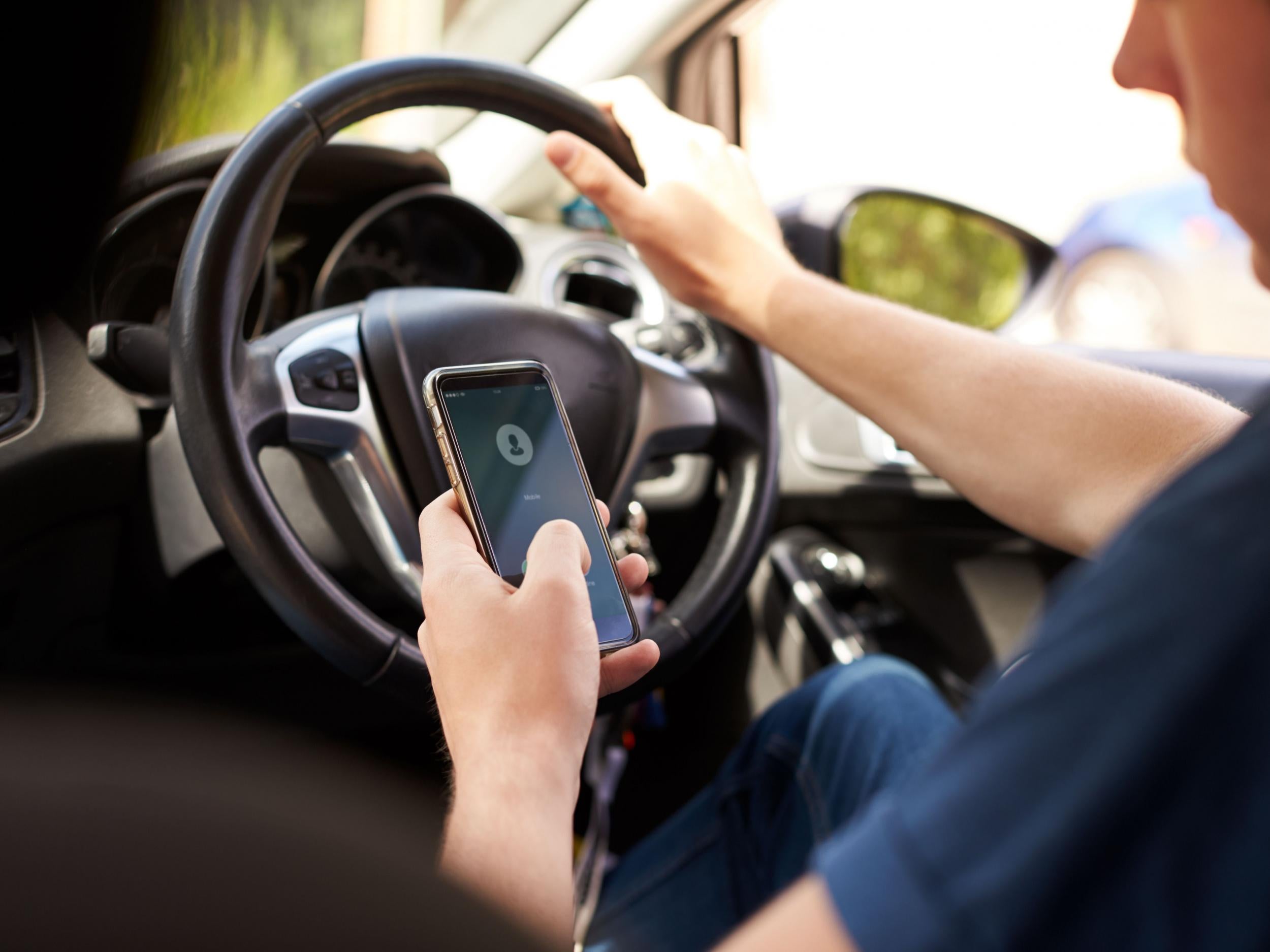Four in five drivers put themselves and others in danger by being distracted at wheel, study claims
A quarter of motorists believe they have had near-miss because they were not concentrating while driving

Your support helps us to tell the story
From reproductive rights to climate change to Big Tech, The Independent is on the ground when the story is developing. Whether it's investigating the financials of Elon Musk's pro-Trump PAC or producing our latest documentary, 'The A Word', which shines a light on the American women fighting for reproductive rights, we know how important it is to parse out the facts from the messaging.
At such a critical moment in US history, we need reporters on the ground. Your donation allows us to keep sending journalists to speak to both sides of the story.
The Independent is trusted by Americans across the entire political spectrum. And unlike many other quality news outlets, we choose not to lock Americans out of our reporting and analysis with paywalls. We believe quality journalism should be available to everyone, paid for by those who can afford it.
Your support makes all the difference.Motorists have admitted to taking their eyes off the road to stroke pets, use their phones and attempt sex acts on their other half, a study has revealed.
Research showed four in five drivers had potentially put themselves and others in danger including by putting on make-up while driving.
One in four had taken a phone call in the driver’s seat, and 14 per cent have tapped out a text message.
Another 8 per cent of drivers have tried to operate the pedals using different feet, while 6 per cent have attempted a sexual act on their partner while travelling from A to B, researchers found.
Thirty-five per cent have taken their eyes off the road to pass something to the passenger in the back seat, and 20 per cent have kept their foot on the accelerator while checking a map on their phone.
Holger G Weiss, chief executive of German Autolabs, which commissioned the study, said: “Driving is a somewhat mundane part of everyday life for millions of Brits across the country, and this chore-like familiarity can lead us to grow complacent to the potential risks around us.
“While we are sure many of the four in five drivers guilty of being distracted in the driver’s seat will be confident in their multitasking abilities, we think the findings should be seen as concerning.”

As a result of this distracted driving, 26 per cent believed they had had a near-miss with another motorist, and one in 10 have actually had a collision because their attention was elsewhere.
Only a third of drivers considered themselves a completely safe presence when they hit the road.
Mobile phones are a key source of distraction for drivers, as 31 per cent confessed to checking their device when they should have their minds on the task at hand.
Despite this widespread use of smartphones and mobile devices while in the driving seat, 44 per cent were unaware of the legal penalty for doing so – six points on their license and a £200 fine.
Two-third of those surveyed also believed using your smartphone while driving was just as dangerous as driving after two pints at the pub.
The average motorist thought they checked their mobile 21 times a day on average and three of these times occurred while they were driving.
To combat the compulsion to check their phone notification on their drive, almost a third have put their device out of reach in the glove box.
There was also a strong perception that younger drivers are more likely to check their phone than more experienced motorists, as 55 per cent of those surveyed believed drivers aged 18 to 25 were the most easily distracted by their devices.
Mr Weiss added: “We believe as younger people can often only afford older cars without voice command technology, they are more likely to take their hands off the wheel to check a text or WhatsApp.”
SWNS
Join our commenting forum
Join thought-provoking conversations, follow other Independent readers and see their replies
Comments